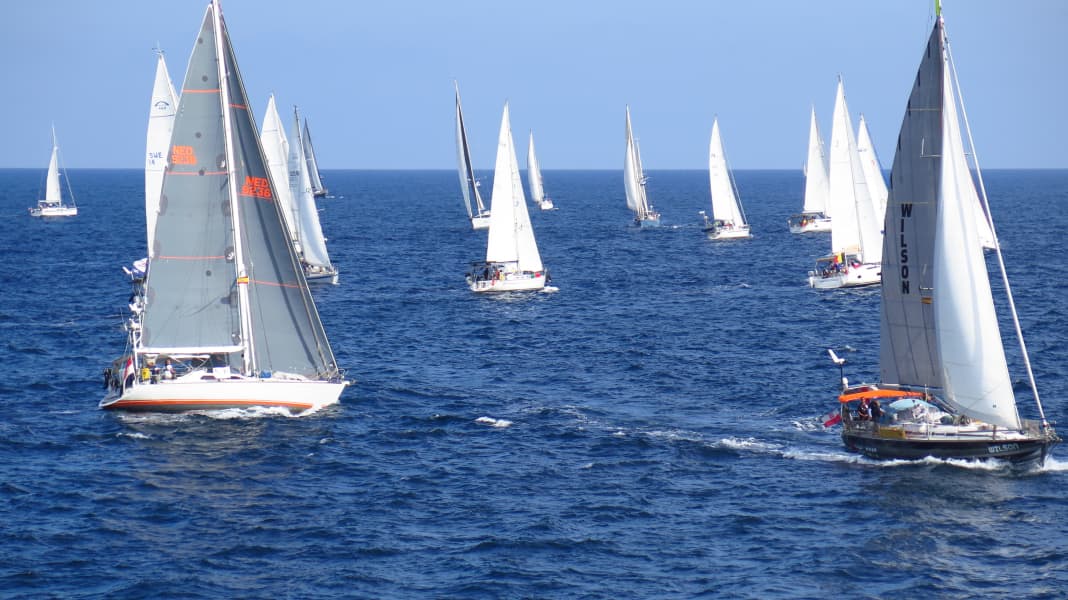
Off on an adventure, out into the Atlantic: 141 yachts set sail for the Caribbean on Sunday afternoon off Las Palmas de Gran Canaria with the Atlantic Rally for Cruisers (ARC). The cruising yachts will be travelling for almost three weeks until land appears on the horizon in front of them again. The racing yachts are expected to arrive much earlier. The destination of the fleet of 900 sailors from 38 countries is St Lucia.
Successful start
Nine yachts are sailing under the German flag. However, a total of 18 boats are led by German sailors, who are represented by 71 sailors in the field of participants. Promising: Markus Bocks' S&S Swan 48 was the first yacht to cross the starting line in the "Cruising Division", the largest starting group with 92 boats.
Bocks is sailing the ARC with berth charter guests for the third time. Shortly before setting off, the German told YACHT on site that they want to give their all at the start. "Of course, many cruising crews say that they want to start defensively and far back - but then there's nobody at the front!" the sailor says with a laugh.
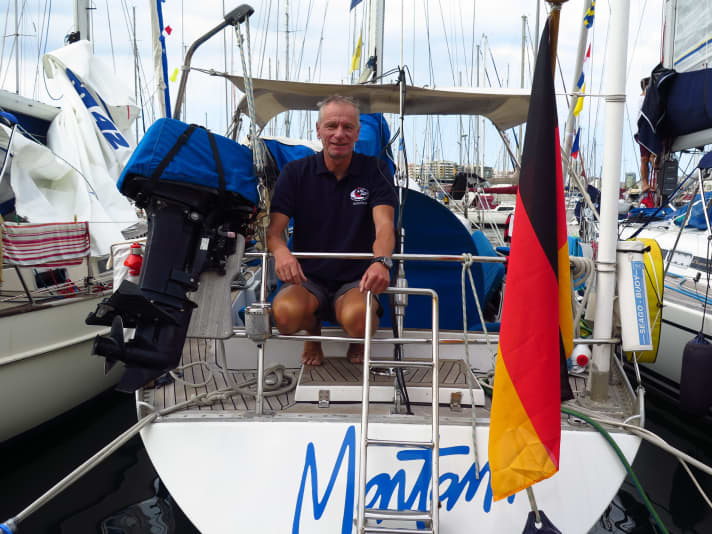
In fact, the starts went almost without a hitch. Between 12.30 p.m. and 1 p.m. local time, the yachts were sent out onto the course, divided into the Open Division, Racing Division, Multihulls and Cruising Division. Only one yacht had to turn back at the starting line because a crew member seriously injured a finger when a winch went over.
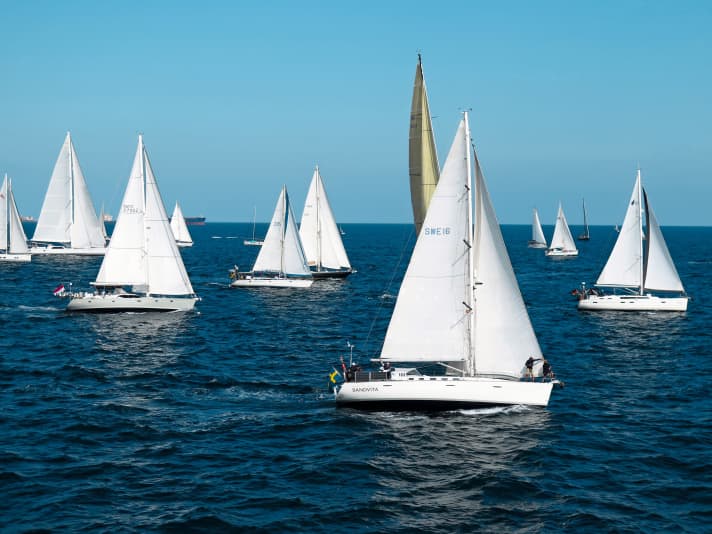
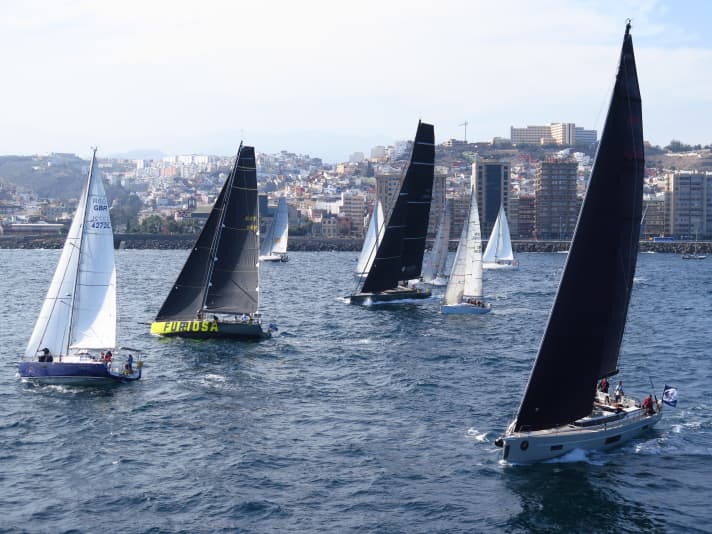
Together instead of alone
The composition of the crews with black, red and gold on the stern represents the enormous range of ARC sailors: couples, families, friends and charter crews.
Hans and Anne Thiel, for example, decided to cross the Atlantic in a pack with their son Rene, 13, and daughter Jenny, 14, so that they could make lots of contacts beforehand.
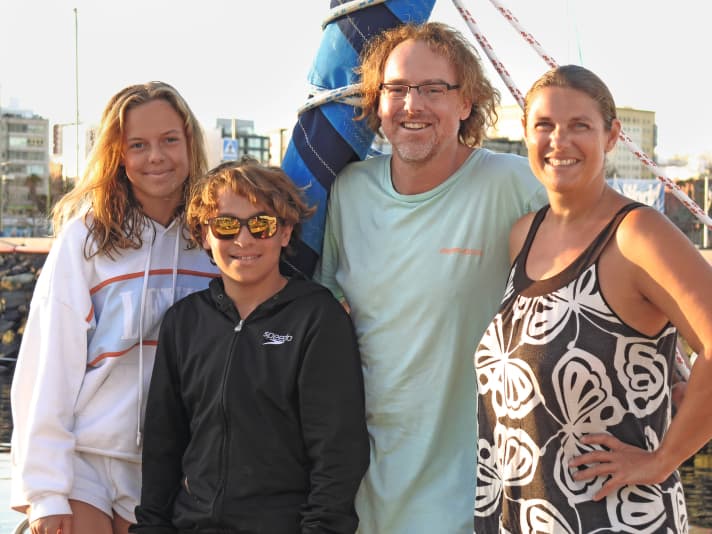
For Eddy Rummel, together with his partner and friends on board his Jeanneau "Go East", the community experience was also the decisive reason for signing up for the ARC instead of sailing across the ocean alone. The entrepreneur regrets that most of the usual seminars and parties on site had to be cancelled due to the pandemic. Nevertheless, he does not regret the decision. "The organisational framework alone was worth it," says Rummel.
Search for the Passat
Nevertheless, as very little wind was forecast for the first few days at sea, quite a few crews had doubts as to whether it was really a good idea to set off on the long-scheduled date. However, the start was encouraging: instead of having to motor across the line in a flat calm, as some had feared, the sails could be tightened in a fresh 10 to 15 knots. However, the downwind sails remained packed up. For the first few miles, we had to cross to the south.
The wind is expected to remain light and changeable for the first few days. Only then can the boats taking a southerly route expect to encounter constant trade winds. "The weather situation is unusual," says meteorologist Sebastian Wache from Kiel, who is providing weather data to some of the German crews en route. Chris Tibbs, meteorologist for the World Cruising Club, advised at the skippers' briefing to sail south along the African coast to the latitude of Cape Verde - if in doubt, as a "motor sailor" - and then point the bow westwards with the trade winds hopefully setting in.
Rush hour on the ocean
The "ARC Plus" fleet has already done this. The 67 ships in this rally had already set sail from Las Palmas at the beginning of November to make a stop in Mindelo on the Cape Verde Islands. On Friday, the participating yachts, including several German yachts, cast off for the Atlantic crossing. A further 60 crews will then take part in the first edition of the "ARC January" and set sail in a third Atlantic Rally in the new year.
2700 nautical miles lie ahead of the ARC skippers and their crews. For most of them, this means around 18 to 21 days and nights at sea. If you would like to follow the fleet virtually, you can do so in the Rally-Tracker of the World Cruising Club (click).
You will soon be able to read the full report on the Atlantic adventure in YACHT.

